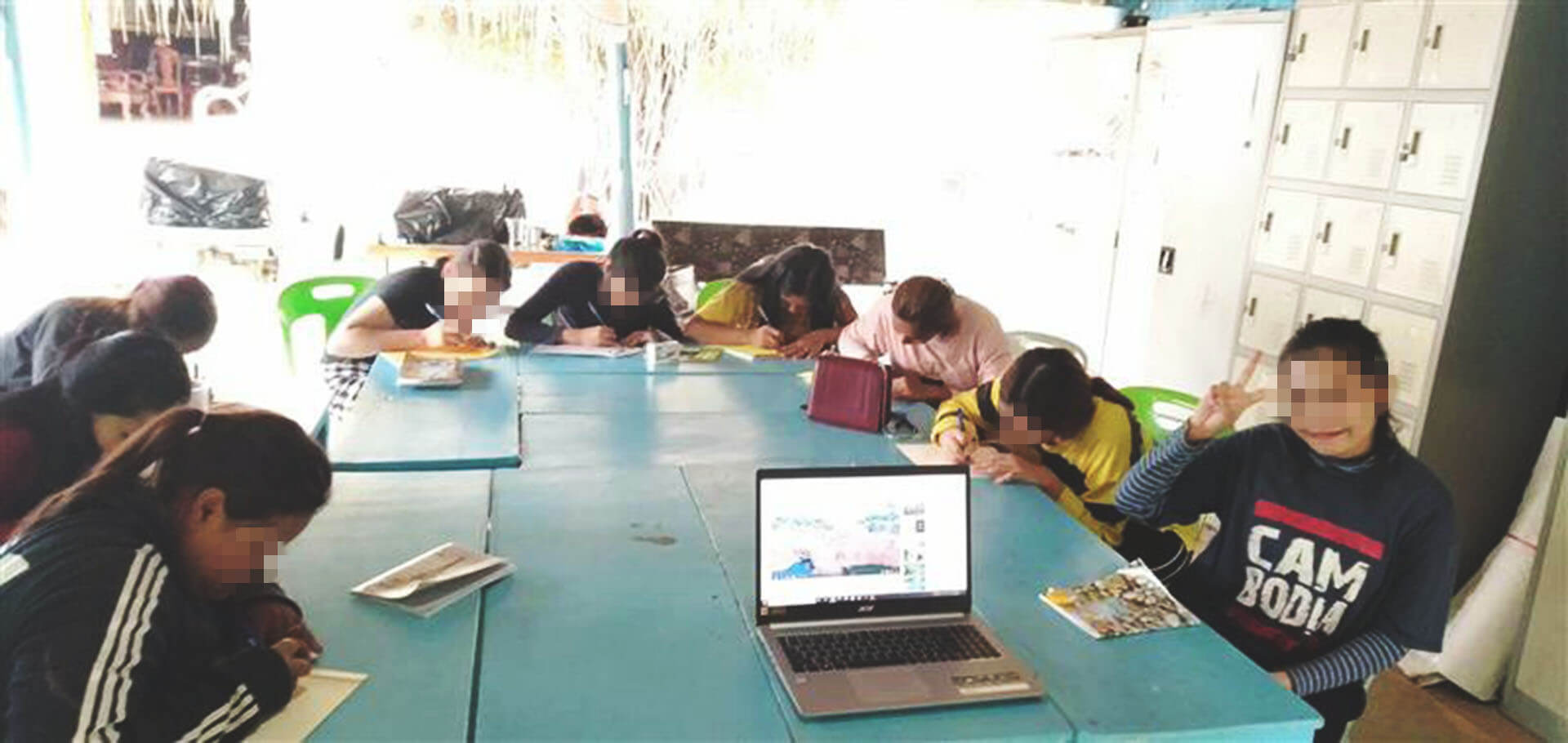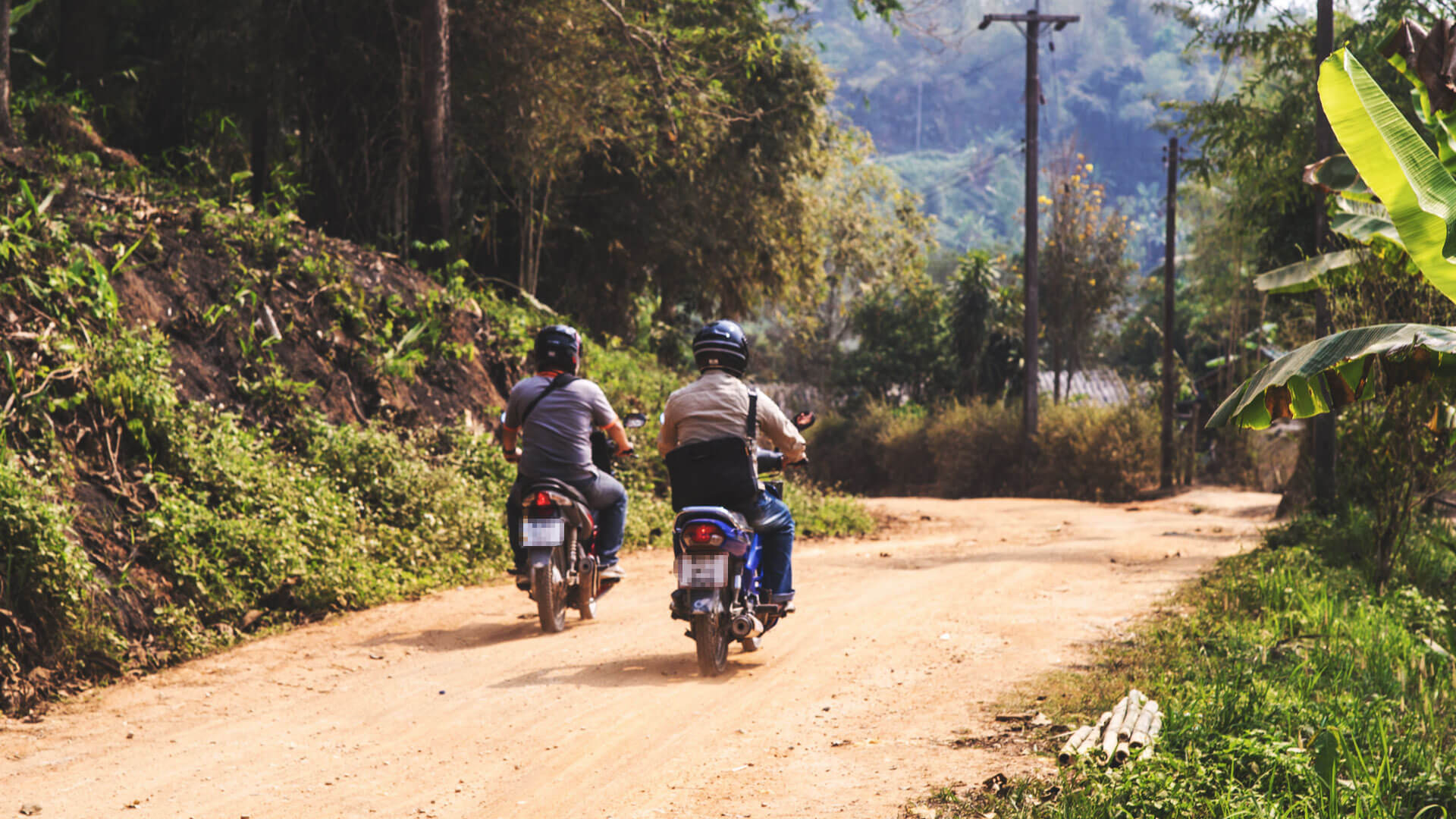While people were upset when their favorite cafe or gym shut their doors in countries in lockdown early this year because of Covid-19, thousands of children across the globe were forced out of their residential institutes and sent home.
Destiny Rescue also had to relocate survivors living in our residential home in Cambodia. Bea, our healthcare liaison in the country, says this resurfaces the reality that not all children in institutions are orphans.
68%
HAD A LIVING PARENT
In 2018, there were 7600 children in institutions in Cambodia and 68% of them had at least one living parent, according to a report last year by the United Nations Children’s Fund.
The different roads
Most children in institutes worldwide are sent there because their parents were poor. Unable to feed, clothe or educate their child, they would hand them to an institution. In Cambodia in 2014, about two million people were in poverty.
Other reasons for why children land in institutions include poor parenting, child illness, gender discrimination, natural disasters, child abuse and disabilities.
Some parents of children with disabilities have put their child in an institution because they do not have access to an appropriate health centre. Or, in a radical scenario in some countries in Asia, it is because parents believe their child with a disability is a curse.
In many cases, children living in institutions have one or more parents that could care for them if assistance and guidance was provided.
Destiny Rescue believes it is healthier for most children to live at home rather than an institution and for those institutions to then use their resources to care for children once at home. Bea says this sentiment applies to girls who have been rescued from sexual exploitation in bars and brothels.

She needs that love from her parents,” she says
Harmful effects
Our residential home in Cambodia exists to care for survivors who need it. We take girls in if it is unsafe for her to return home or she has a high level of trauma, specialized needs, or an open court case.
Some girls stay in the home on weekdays for classes and live with their parents on weekends, but the home currently has only seven girls living there permanently. This is a mere bump compared to a mountain number of children in institutes across the world.
As many as six million children worldwide were in institutes in 2015, according to a report in June by global medical journal The Lancet.
The most common side effects for these children – especially if they enter an institution as a toddler – include delayed development, lack of life skills and attachment problems, according to Australian-based child rights agency Kinnected.
A balance
At our residential home, survivors, who are usually teenagers, have experienced both heartache and warmth.
Our home in Cambodia has 12 staff, including caseworkers and social workers, who offer services such as trauma counselling, education and vocational training for girls.

On one hand, Reasmey, a 17-year-old survivor who lived in the home this year, says she experienced “warmth” from the staff, referring to them as her “mothers”.
“They give a great love to us that is bigger than our own parents,” Reasmey says.
On the other hand, Bea says some girls have become severely homesick after being separated from their parents for a few months.
One girl, who was only 11 years old, “was crying every day because she missed her parents and siblings,” Bea says.
Another challenge, Bea says, is striking a balance between giving a survivor good healthcare while making it affordable for them to maintain this care after they leave.
Returning a survivor home to their impoverished family after being in Destiny Rescue’s care can be frightening, Bea says. Although, this transition is safe as our team checks the safety of a survivor’s family before reintegration, and our caseworkers regularly call the girls. “The girls in our care are looked after well and I pray that they will be ok when they are reintegrated.”
The best path
Bypassing some challenges arising from living in a residential home, most survivors choose to follow our community care program after they are rescued from a bar.
Community care is a program where a survivor follows our reintegration plan, which includes receiving counselling, education, vocational training and health checks while living at home. This service is only available if a survivor’s family passes a safety review. This path is also suitable for a survivor with low-levels of trauma.
“We don’t think it’s wise to pluck her away from the family because it does break up the family as well. Though, in scenarios where the home environment is unsafe or a perpetrator is still at large, it is better and safer for her to be in our care,” Bea says.

Dedicated caseworkers have traveled over eight hours in one day over rugged terrain to visit girls living in remote areas.
Under the program, Destiny Rescue’s caseworkers try to visit a survivor once a month for about six months on average. Although, no path is without its unique challenges.
Staying in contact with these girls can be challenging, Bea says, as they “love to change their phone numbers”. “A week after receiving their number, they could have given it to their family.” Bea says they can also feel ashamed for receiving help, saying one girl “stopped picking up our calls.”
It can be difficult to visit survivors who live far away, given our staff are stationed in one city in a country of more than 16 million people. “If a girl is far away, we may not be able to visit them as often. Then, they will regularly call them and their parents, extended families and friends.” Our social workers will often counsel survivors over the phone too.
Despite these challenges, Bea says survivors who are living with their families often reintegrate into life well, saying many of them start a business or work with their families.

“It’s really sweet that they’re wanting to stay with the family.”
Destiny Rescue’s residential home and community care programs offer many rich services. These include showing girls the love of Jesus, funding scholarships so they can attend school, and providing them with free health checks.


 Australia
Australia New Zealand
New Zealand